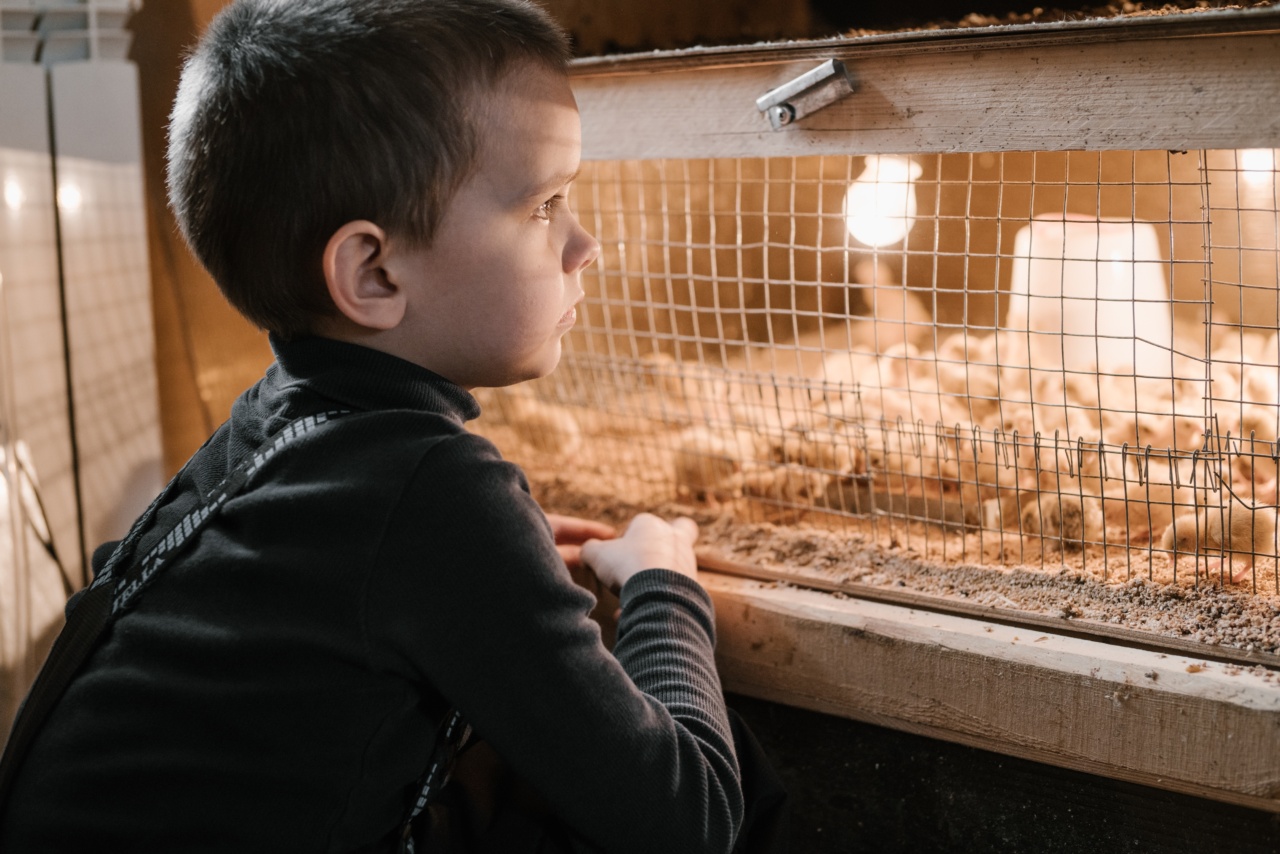Chicken gastroenteritis refers to an inflammation or infection that affects the intestinal tract of chickens. It is a common problem in poultry farms and can lead to significant losses when not properly controlled.
As a chicken owner or poultry farmer, it is essential to understand the symptoms of gastroenteritis in chickens, how to prevent it, and what to do when it occurs. This article focuses on the symptoms of chicken gastroenteritis that every poultry farmer or chicken owner should keep an eye on.
Symptoms of Chicken Gastroenteritis
The symptoms of gastroenteritis in chickens can manifest in different ways depending on the severity of the infection. Some common symptoms to watch out for include:.
1. Diarrhea
Diarrhea is one of the most common symptoms of chicken gastroenteritis. Chickens with diarrhea often excrete loose, watery stools that may contain blood or mucus.
You may also notice a foul smell emanating from the droppings, which is a clear indication of intestinal inflammation or infection. Diarrhea can cause dehydration, weight loss, and electrolyte imbalances, leading to weakened immunity and increased susceptibility to other infections.
2. Lethargy
Another common symptom of chicken gastroenteritis is lethargy or lack of activity. Chickens affected by gastroenteritis may appear weak or tired, may not move around as much, and may spend more time sitting or lying down.
Lethargy is a sign of system-wide inflammation or infection and can be indicative of other health issues, so it’s essential to monitor your chickens for other symptoms as well.
3. Loss of Appetite
Gastroenteritis in chickens can also lead to a loss of appetite. Chickens may refuse to eat or reduce their feed intake, which can lead to malnutrition and further weaken their immunity.
A sudden drop in egg production can also indicate gastroenteritis, as this is often caused by a lack of nutrition or systemic stress.
4. Dehydration
Dehydration is a common complication of diarrhea in chickens. When chickens suffer from diarrhea, they excrete more fluids than they consume, leading to dehydration. Signs of dehydration include dry or pale combs and wattles, sunken eyes, and lethargy.
Dehydration can quickly become life-threatening, so prompt intervention is necessary.
5. Pasty Vent
Pasty vent is a condition where feces accumulate around the vent area, forming a clumpy, pasty mass. It is commonly seen in chickens affected by gastroenteritis and can be a result of the increased fluidity of the droppings.
Pasty vent can cause discomfort, reduce mobility, and increase the risk of secondary infections by attracting flies and other pests.
6. Respiratory Issues
While respiratory issues may not be directly associated with gastroenteritis, infected chickens may develop secondary respiratory infections due to their reduced immunity and overall systemic stress.
Respiratory symptoms to watch out for include coughing, wheezing, sneezing, and nasal discharge.
7. Abdominal Distention
Chickens with severe gastroenteritis may develop abdominal distention, where the abdomen appears swollen or bloated. This is due to fluid accumulation in the abdominal cavity, a condition known as ascites.
Ascites can cause severe discomfort, increase mortality, and is often associated with other health issues such as heart or liver disease.
8. Poor Feather Quality
Chickens affected by gastroenteritis may have poor feather quality due to malnutrition, dehydration, and stress. Feathers may appear dull, discolored, or brittle, and may fall off more easily than usual.
Poor feather quality can increase susceptibility to temperature stress, predation, and other health issues.
9. Increased Mortality Rate
Gastroenteritis in chickens can lead to a significant increase in the mortality rate. Mortality may be due to dehydration, malnutrition, secondary infections, or the direct effects of the disease on vital organs.
Prompt intervention, such as administering fluids, electrolytes, and antibiotics, can help reduce mortality and prevent further spread of the infection to healthy birds.
10. Wet Litter
Wet litter is an early indication of gastrointestinal issues in chickens. Litter may appear moist, soiled, or stuck to the birds’ feet or feathers.
Wet litter can promote bacterial growth, increase the risk of respiratory issues, and increase the chances of infection transmission.
Conclusion
Chicken gastroenteritis is a common infection that can lead to significant losses in poultry farms and backyard flocks. Understanding the symptoms of gastroenteritis in chickens is essential for prompt and efficient intervention.
If you notice any of the symptoms mentioned above, it is crucial to isolate the affected birds, administer supportive care, and seek veterinary assistance if necessary.

























